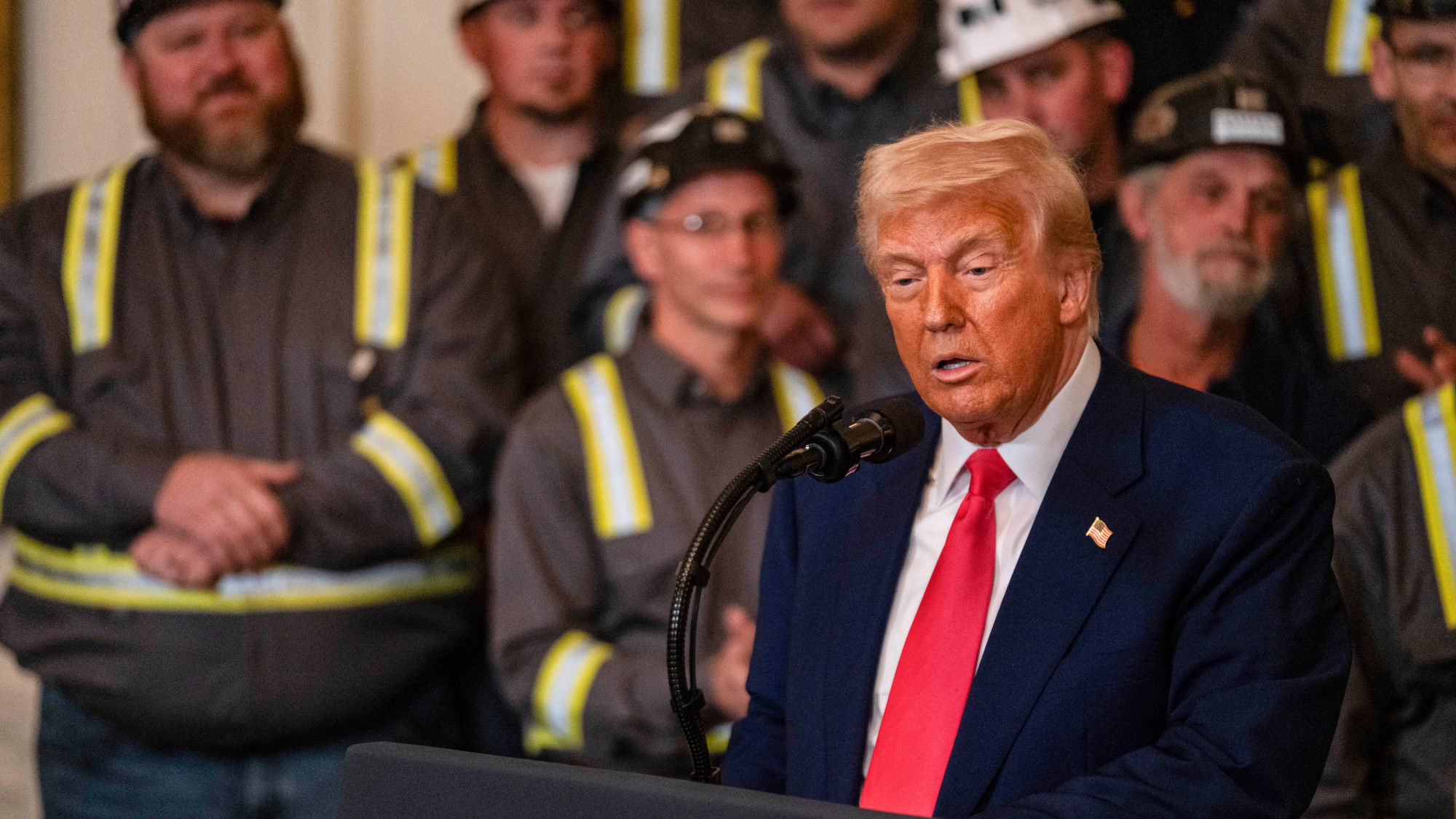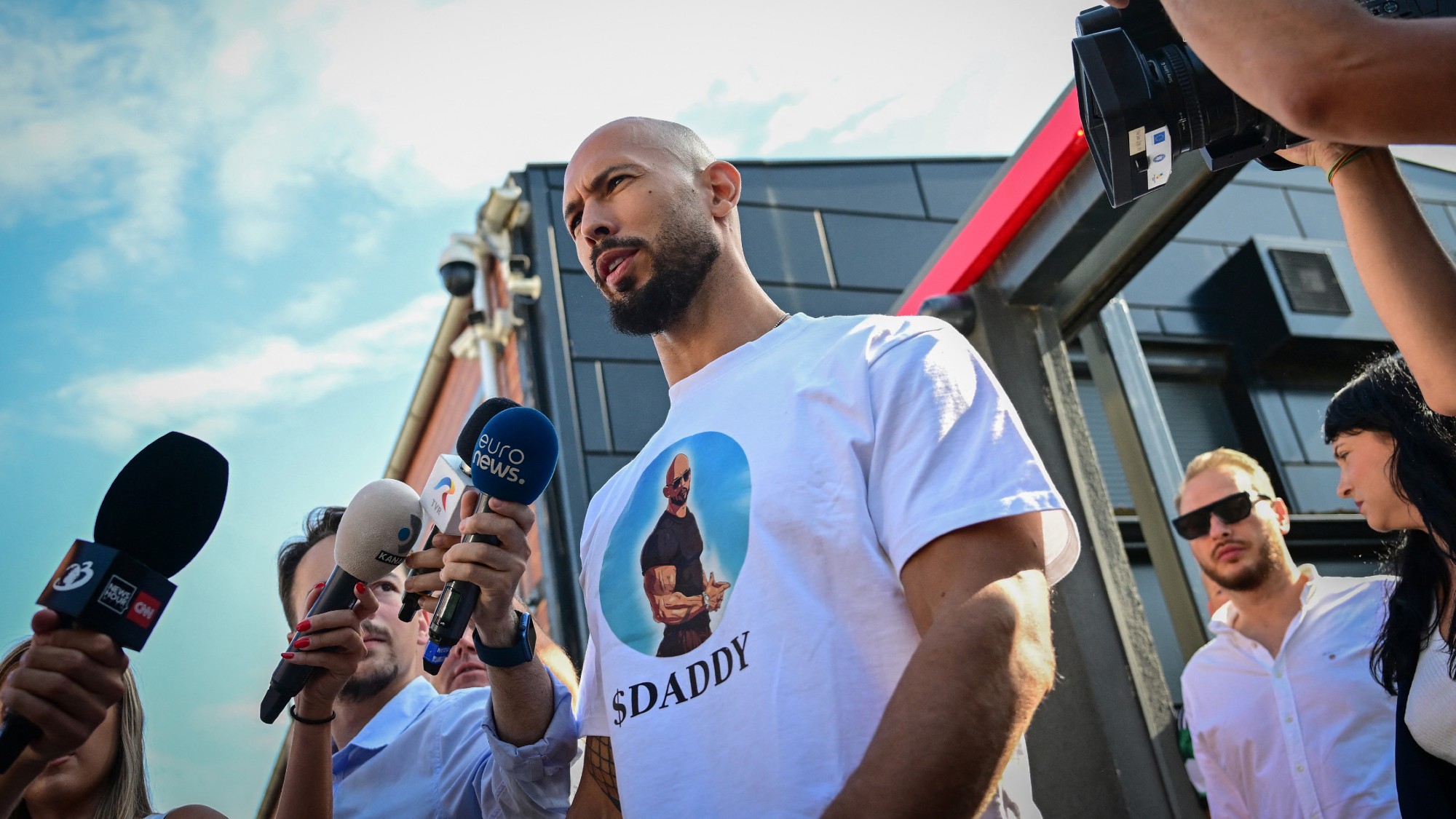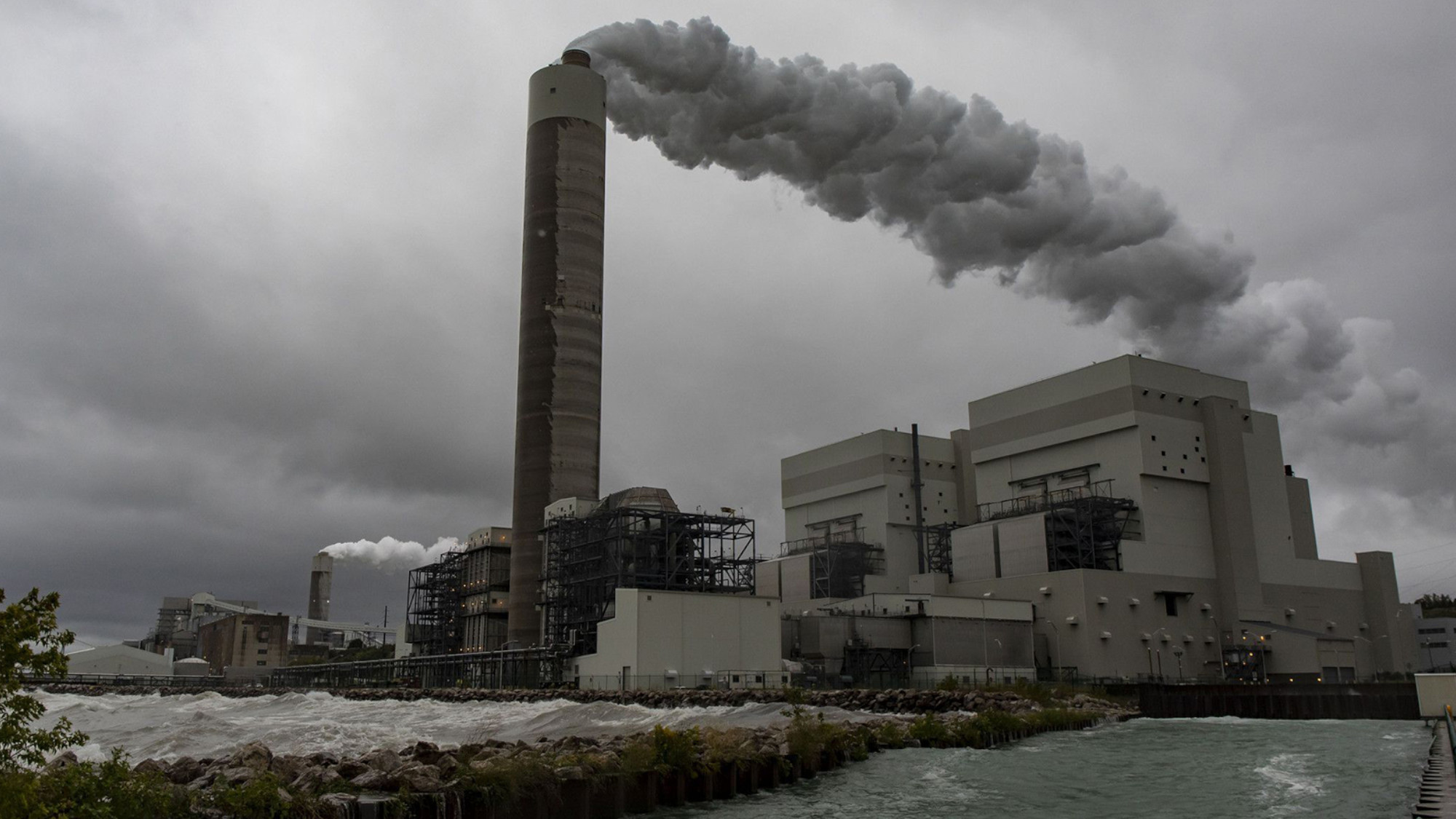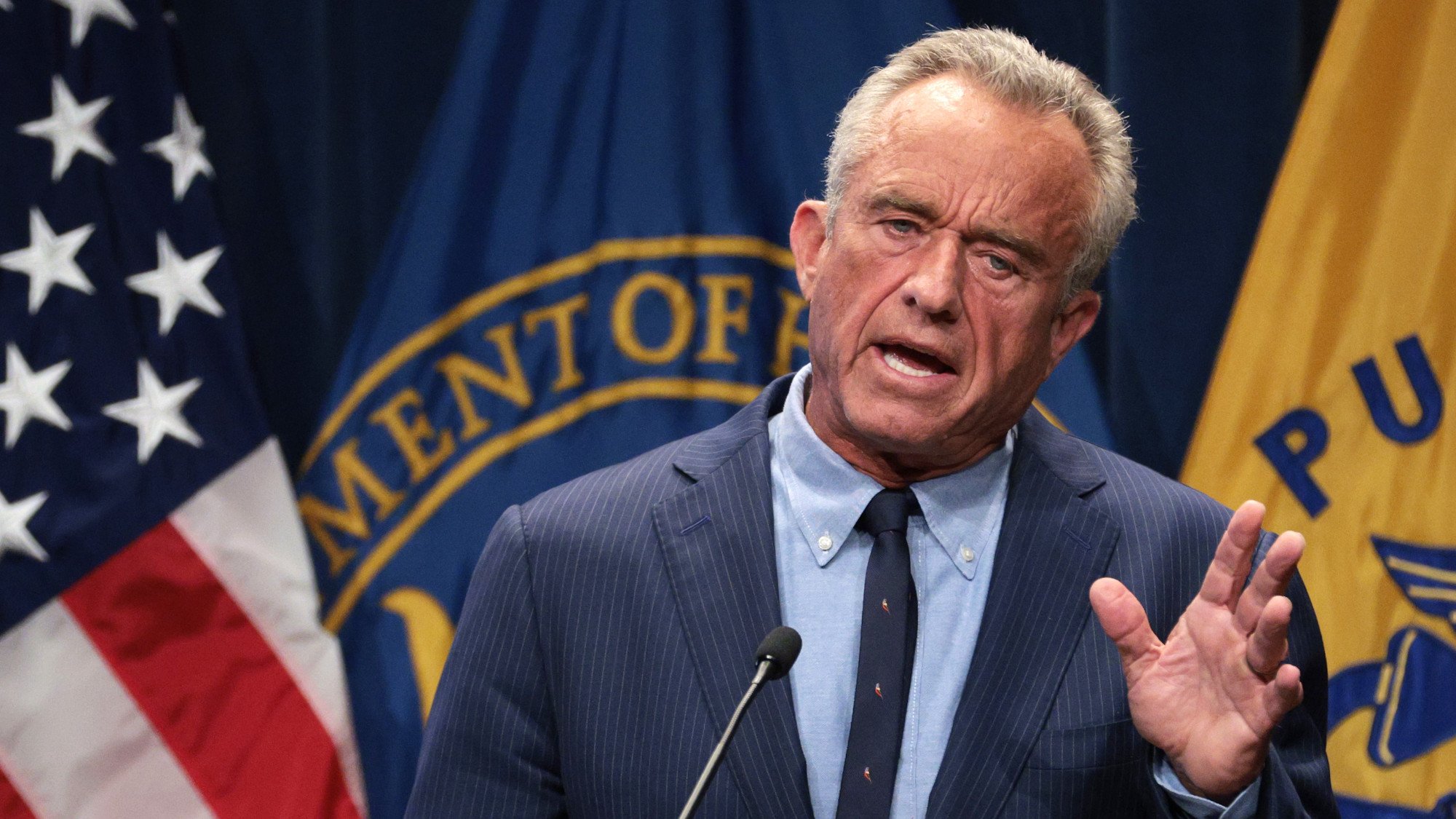Albanian migration and the exodus from a ‘failed state’
Enticed by the economic opportunity in Britain, more Albanian migrants have been crossing the Channel

In a concrete school playground in Kukës – Albania’s poorest region – a group of teenagers stand around, playing with a tattered volleyball. These are the ones who have been left behind, said Ben Ellery in The Times.
Dozens of their classmates have already left school, not to go to college or to start work in the local factory, but to travel by bus or coach or plane to France, and thence across the Channel to England. The school’s head teacher, Vjollca Gashi, describes it as an epidemic: she used to have 1,500 pupils; now there are just 1,050.
Usually, the students disappear during their last year, but some are as young as 15. “They are following their friends to England – once they know someone there, they are halfway there already,” she says. And there is nothing unique about her experience. In towns across this northern region and beyond, young Albanians are being encouraged by the experiences of friends and relatives – and by the stream of seductive videos posted by people smugglers on TikTok – to leave their country, in search of a better life in Britain.
Subscribe to The Week
Escape your echo chamber. Get the facts behind the news, plus analysis from multiple perspectives.

Sign up for The Week's Free Newsletters
From our morning news briefing to a weekly Good News Newsletter, get the best of The Week delivered directly to your inbox.
From our morning news briefing to a weekly Good News Newsletter, get the best of The Week delivered directly to your inbox.
Number is ‘undoubtedly’ rising
Undoubtedly, the number of Albanians crossing the Channel is rising, said The i Paper. Around 12,000 of the almost 40,000 or so people who’ve reached Britain in small boats this year are Albanian, up from 50 in 2020.
Most are young single men who have little chance of being granted asylum: 53% of Albanians are granted leave to remain, but of them, only 14% are young men (the vast majority are women and children who have been trafficked). So instead of going through the process, many simply disappear, either to work in the informal economy, or for the Albanian gangs who now control large swathes of the UK drug trade.
Either way, said BBC News, they can expect to earn far more in Britain than they could at home: in 2018, the median household income in Albania was just €1,997pa.
Poor working and living conditions
Working conditions are poor; living standards are low. The economic conditions are a push factor, said Melanie McDonagh in The Spectator, but there is more to it than money. Many Albanians feel that they’re living in a “failed state: the absence of the rule of law, the sense that the place is being run by a corrupt coterie for its own benefit, the hopelessness about the prospects for change”.
As a result, it’s not just the poor who are emigrating. The professional classes are also getting out. Thousands of doctors have left Albania in the past decade. Partly as a result of this brain drain, Albania (pop. 2.8 million) had just 12 doctors per 10,000 people in 2016 – the lowest rate in Europe. By contrast, Serbia had 31.
Potent political issue
In Britain, the growing number of migrants arriving by boat has become a potent political issue, said Amelia Gentleman in The Guardian. It’s not clear, however, if the overall number of arrivals has actually increased: until those routes were disrupted, thousands arrived undetected on trains and in lorries. A hidden phenomenon has become visible – and for a Government that vowed to “take back control” of our borders post-Brexit, the optics are very poor.
Acutely aware of how badly the issue plays with voters, the former home secretary, Priti Patel, ordered officials to explore an array of solutions, from preventing the sale of inflatable dinghies in France (ineffective, because the traffickers get them online from China) to getting Naval cutters to push the boats back (probably unlawful, as there is no way of doing it safely).
Now, her replacement, Suella Braverman, dreams of putting migrants on flights to Rwanda, and warns of an “invasion”. By ramping up the rhetoric, she hopes to win political points, said Kenan Malik in The Observer, but the risk is that she only increases hostility to immigrants – while drawing attention to a perceived crisis that the Tories have singularly failed to solve. Despite all the obstacles put in their way, migrants keep coming.
No easy solutions
Increased enforcement, in cooperation with the French, would dent the numbers, said Madeleine Sumption in the FT. Providing safe legal routes for asylum seekers to come to the UK would reduce them more: no Ukrainians come on boats because they can apply for visas. But it’s hard to imagine such a scheme being rolled out to all the nationalities of people crossing the Channel, though many of them are also fleeing war and persecution.
There are no easy solutions, said Patrick O’Flynn in The Spectator – but we could do more. We could crack down on the informal economy, and we could improve our deportation record for non-refugees: the numbers removed have halved in a decade.
We could also speed up and reform the asylum process, said The Independent. Owing to a massive backlog, it is taking, on average, 449 days to process each claim. Rather than paying £7m a day to billet asylum seekers in hotels, we should let them work in the UK industries that are desperate for workers. With millions on the move all over the world, migrants will keep coming. The challenge for Britain is to make the best of this situation.
Sign up for Today's Best Articles in your inbox
A free daily email with the biggest news stories of the day – and the best features from TheWeek.com
-
 Today's political cartoons - May 4, 2025
Today's political cartoons - May 4, 2025Cartoons Sunday's cartoons - deportation, Canadian politeness, and more
-
 5 low approval cartoons about poll numbers
5 low approval cartoons about poll numbersCartoons Artists take on fake pollsters, shared disapproval, and more
-
 Deepfakes and impostors: the brave new world of AI jobseeking
Deepfakes and impostors: the brave new world of AI jobseekingIn The Spotlight More than 80% of large companies use AI in their hiring process, but increasingly job candidates are getting in on the act
-
 A 'meltdown' at Hegseth's Pentagon
A 'meltdown' at Hegseth's PentagonFeature The Defense Secretary is fighting to keep his job amid leaked Signal chats and staff turmoil
-
 Reining in Iran: Talks instead of bombs
Reining in Iran: Talks instead of bombsFeature Trump edges closer to a nuclear deal with Iran—but is it too similar to former President Barack Obama's pact?
-
 Tariffs: The quest to bring back 'manly' jobs
Tariffs: The quest to bring back 'manly' jobsFeature Trump's tariffs promise to revive working-class jobs, but today's labor market has moved on
-
 Trump's war on academic freedom: how Harvard fought back
Trump's war on academic freedom: how Harvard fought backTalking Point Political pressure on institutions compromises academic independence – and risks damaging America's ability to attract international talent
-
 Andrew Tate and the manosphere: a short guide
Andrew Tate and the manosphere: a short guideThe Explainer It is widely believed that boys and young men are absorbing sexist attitudes online, from influencers in the manosphere
-
 Climate: Trump's attempt to bring back coal
Climate: Trump's attempt to bring back coalFeature Trump rolls back climate policies with executive orders aimed at reviving the coal industry
-
 RFK Jr.: A public-health wrecking ball
RFK Jr.: A public-health wrecking ballFeature Robert F. Kennedy Jr. doubles down on anti-vaccine policies amid a growing measles outbreak
-
 Trump's budget: Gutting Medicaid to pass tax cuts?
Trump's budget: Gutting Medicaid to pass tax cuts?Feature To extend Trump's tax cuts, the GOP is looking to cut Medicaid and other assistance programs